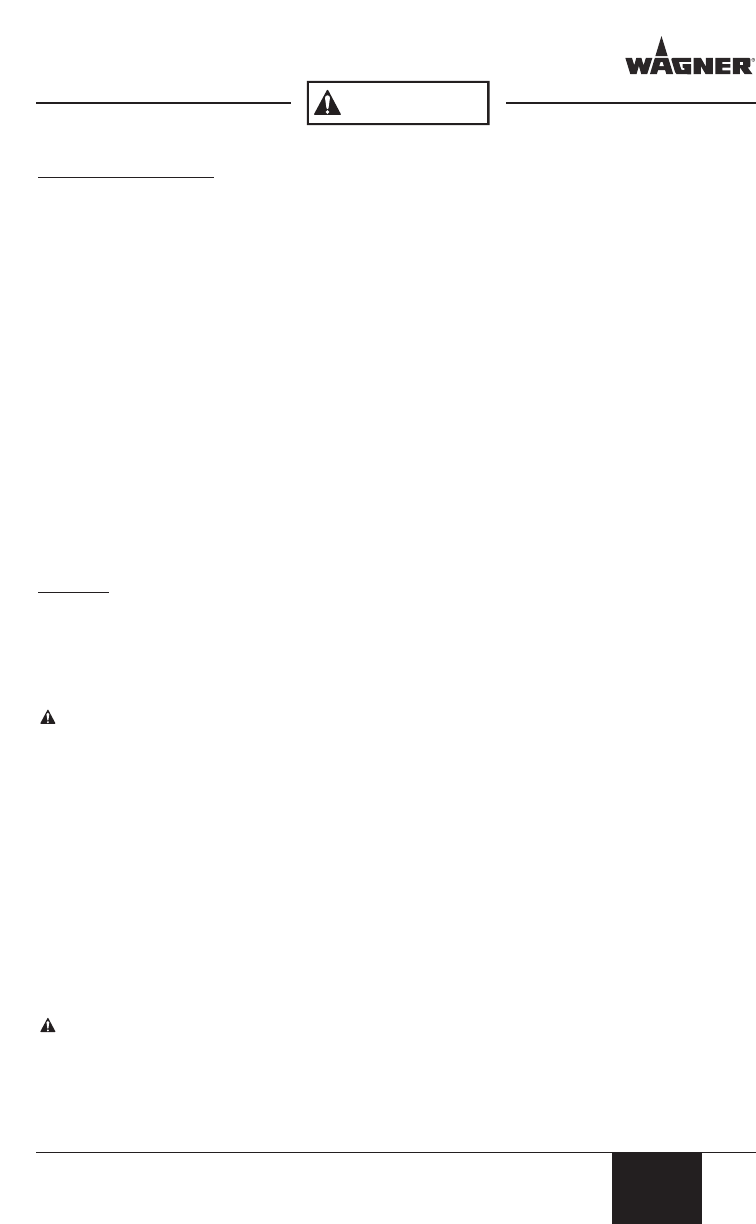
English
3
WARNING
Tool Use and Care
• Use clamps or other practical way to secure and support the workpiece to a stable
platform. Holding the work by hand or against your body is unstable and may lead to loss of
control.
•
Do not force tool. Use the correct tool for your application. The correct tool will do the job
better and safer at the rate for which it is designed.
• Do not use tool if switch does not turn it on or off. Any tool that cannot be controlled with
the switch is dangerous and must be repaired.
• Disconnect the plug from the from the power source before making any adjustments,
changing accessories, or storing the tool. Such preventative safety measures reduce the
risk of starting the tool accidentally.
•
Store idle tools out of reach of children and other untrained persons. Tools are
dangerous in the hands of untrained users.
•
Maintain tools with care. Keep cutting tools sharp and clean. Properly maintained tools,
with sharp cutting edges are less likely to bind and are easier to control.
• Use only accessories that are recommended by the manufacturer for your model.
Accessories that may be suitable for one tool may become hazardous when used on another
tool.
Service
• Tool service must be performed only by qualified repair personnel. Service or
maintenance performed by unqualified personnel could result in a risk of injury.
• When servicing a tool, use only identical replacement parts. Follow instructions in the
Maintenance section of this manual. Use of unauthorized parts or failure to follow
Maintenance instructions may create a risk of electric shock or injury.
WARNING - Some dust created by power sanding, sawing, grinding, drilling, and other
construction activities contains chemicals known to cause cancer, birth defects or other reproductive
harm. Some examples of these chemicals are:
• lead from lead-based paints
• crystalline silica from bricks and cement and other masonry products
• arsenic and chromium from chemically-treated lumber (CCA).
Your risk from these exposures varies, depending upon how often you do this type of work. To
reduce your exposure to these chemicals: work in a well-ventilated area and work with approved
safety equipment, such as dust masks that are specially designed to filter out microscopic particles.
•
Avoid prolonged contact with dust from power sanding, sawing, grinding, drilling and
other contruction activities. Wear protective clothing and wash exposed areas with
soap and water. Allowing dust to get into your mouth, eyes, or lay on the skin may promote
absorption of harmful chemicals.
WARNING - Use of this tool can generate and/or disburse dust, which may cause serious
and permanent respiratory or other injury
.
Always use NIOSH/OSHA
approved respiratory
protection appropriate for the dust exposure. Direct particles away from face and body
.
SAVE THESE INSTRUCTIONS


















